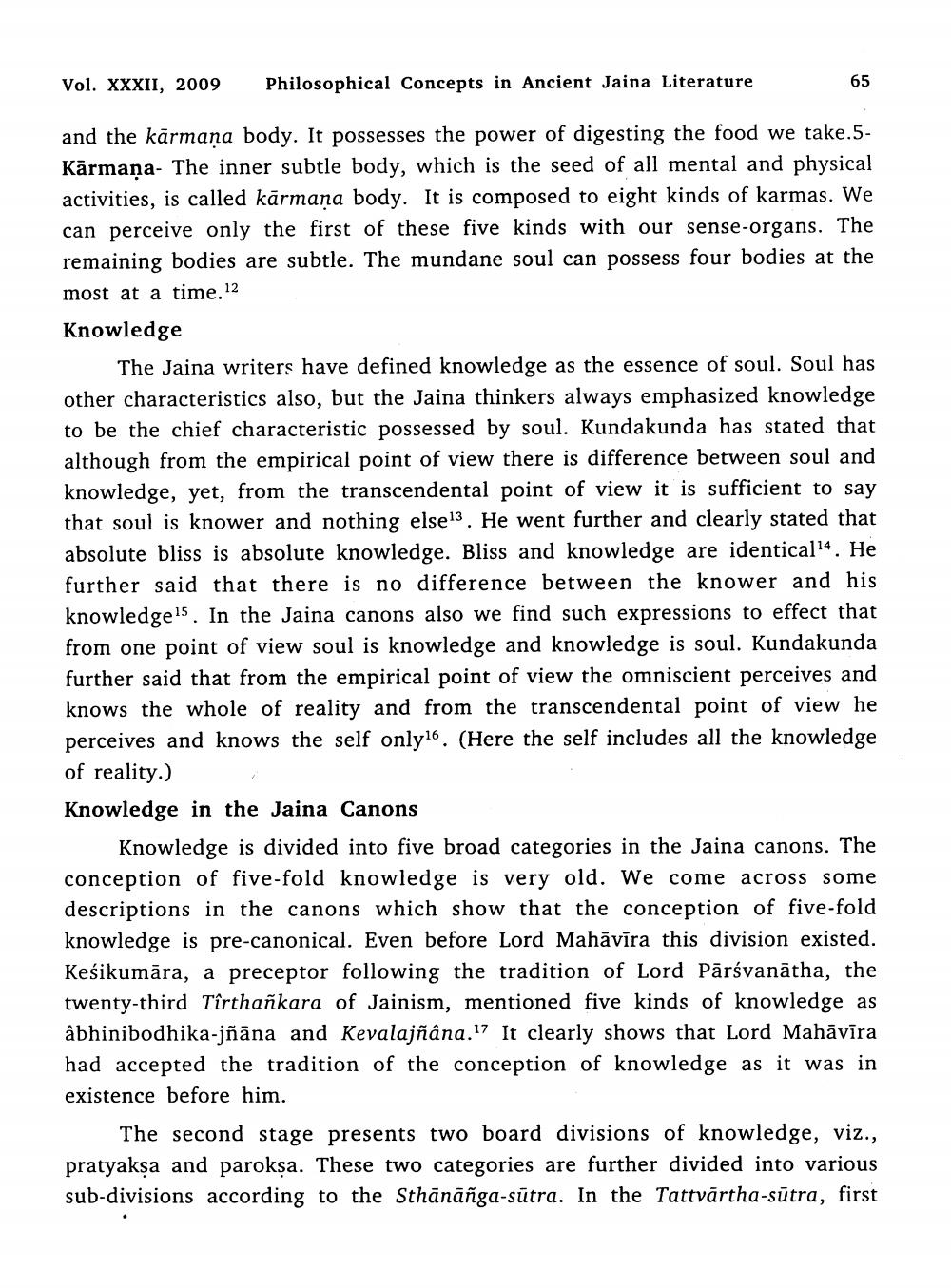________________
Vol. XXXII, 2009
Philosophical Concepts in Ancient Jaina Literature
65
and the kārmana body. It possesses the power of digesting the food we take.5Kārmaņa- The inner subtle body, which is the seed of all mental and physical activities, is called kārmana body. It is composed to eight kinds of karmas. We can perceive only the first of these five kinds with our sense-organs. The remaining bodies are subtle. The mundane soul can possess four bodies at the most at a time. 12 Knowledge
The Jaina writers have defined knowledge as the essence of soul. Soul has other characteristics also, but the Jaina thinkers always emphasized knowledge to be the chief characteristic possessed by soul. Kundakunda has stated that although from the empirical point of view there is difference between soul and knowledge, yet, from the transcendental point of view it is sufficient to say that soul is knower and nothing else13. He went further and clearly stated that absolute bliss is absolute knowledge. Bliss and knowledge are identical14. He further said that there is no difference between the knower and his knowledges. In the Jaina canons also we find such expressions to effect that from one point of view soul is knowledge and knowledge is soul. Kundakunda further said that from the empirical point of view the omniscient perceives and knows the whole of reality and from the transcendental point of view he perceives and knows the self only 16. (Here the self includes all the knowledge of reality.) Knowledge in the Jaina Canons
Knowledge is divided into five broad categories in the Jaina canons. The conception of five-fold knowledge is very old. We come across some descriptions in the canons which show that the conception of five-fold knowledge is pre-canonical. Even before Lord Mahāvīra this division existed. Kesikumāra, a preceptor following the tradition of Lord Pārsvanātha, the twenty-third Tîrthañkara of Jainism, mentioned five kinds of knowledge as âbhinibodhika-jñāna and Kevalajñâna.17 It clearly shows that Lord Mahāvīra had accepted the tradition of the conception of knowledge as it was in existence before him.
The second stage presents two board divisions of knowledge, viz., pratyaksa and paroksa. These two categories are further divided into various sub-divisions according to the Sthānāñga-sutra. In the Tattvārtha-sūtra, first




